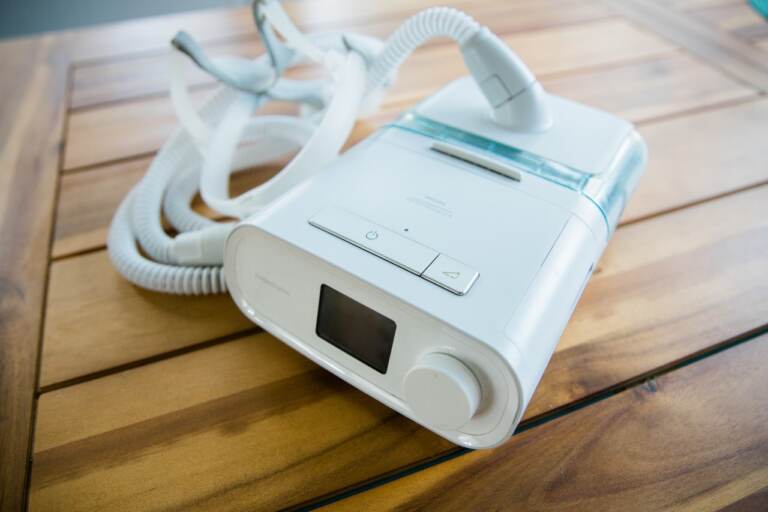
The recalled machines were made with a type of foam that may degrade over time and release carcinogens that could be inhaled by the user. Kunal Agarwal, a sleep medicine specialist with Nanticoke Memorial Hospital in Seaford, Delaware. Left untreated, sleep apnea can put people at risk for hypertension, heart failure, increased risk of heart attack and stroke, and decreased quality of life, according to Dr. The CPAP and BiPaP machines work by pushing air into the lungs of people with sleep apnea, a sleep disorder in which breathing intermittently stops. Abbas Anwar, an otolaryngologist and head and neck surgeon at Providence Saint John’s Health Center in Santa Monica, California, told Healthline. “If you have been affected by this recall, it is important to check in with your doctor before completely discontinuing use of your device - especially if you have not yet obtained an alternative,” Dr. Other people are being advised to continue use of the devices, as the benefits outweigh the potential risks. In the meantime, some people are being advised to stop using their Philips breathing devices and opt for an alternative. The company said it would either replace or repair the affected devices within 1 year. The recall, which includes bilevel positive airway pressure (BiPAP) and continuous positive airway pressure (CPAP) sleep apnea devices, impacts approximately 2 million people in the United States. These can then be inhaled and lead to short-term and long-term health issues. According to Philips, the foam may break down into small particles. The foam is used to reduce the sounds and vibrations emitted by the devices. Philips Respironics recalled several sleep apnea machines over concerns that people could be inhaling cancer-causing chemicals through a type of foam that’s embedded in the devices.



 0 kommentar(er)
0 kommentar(er)
